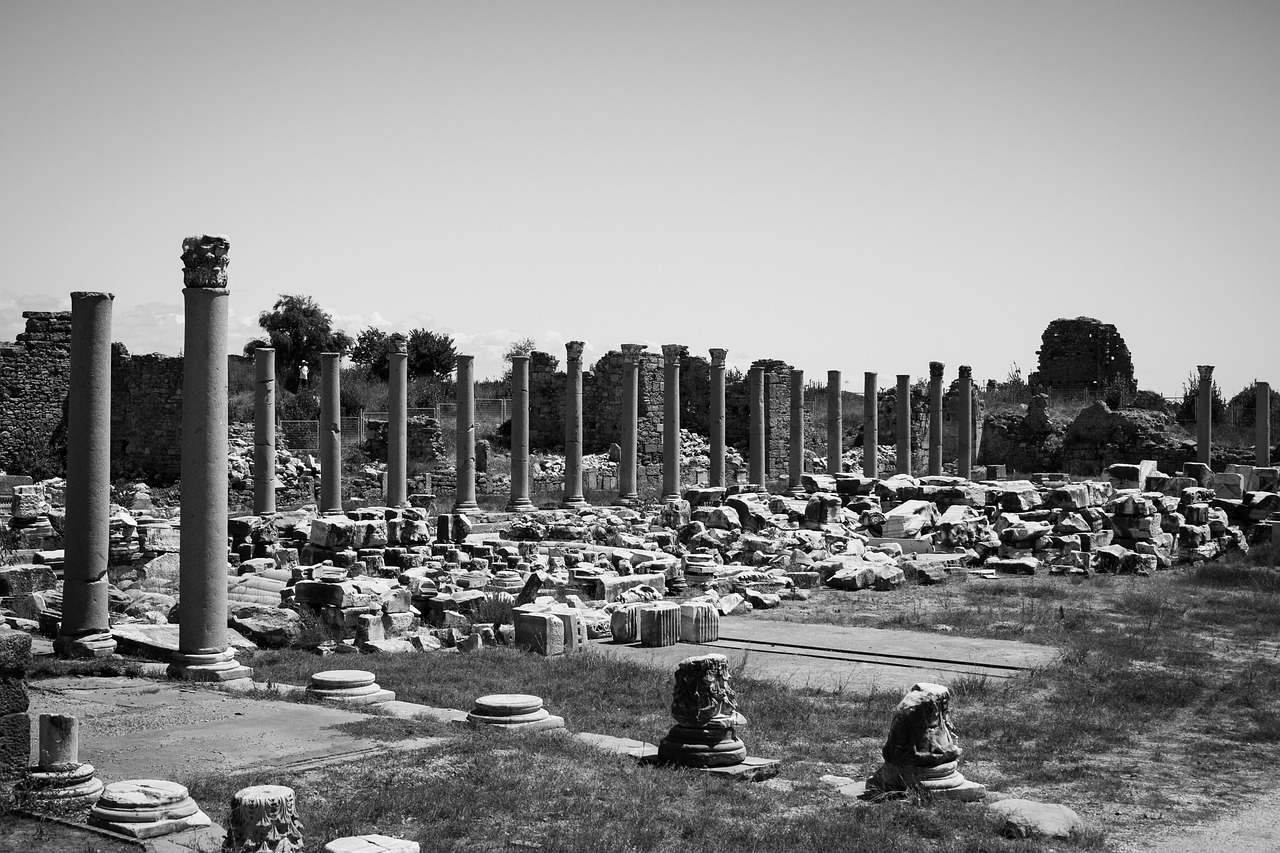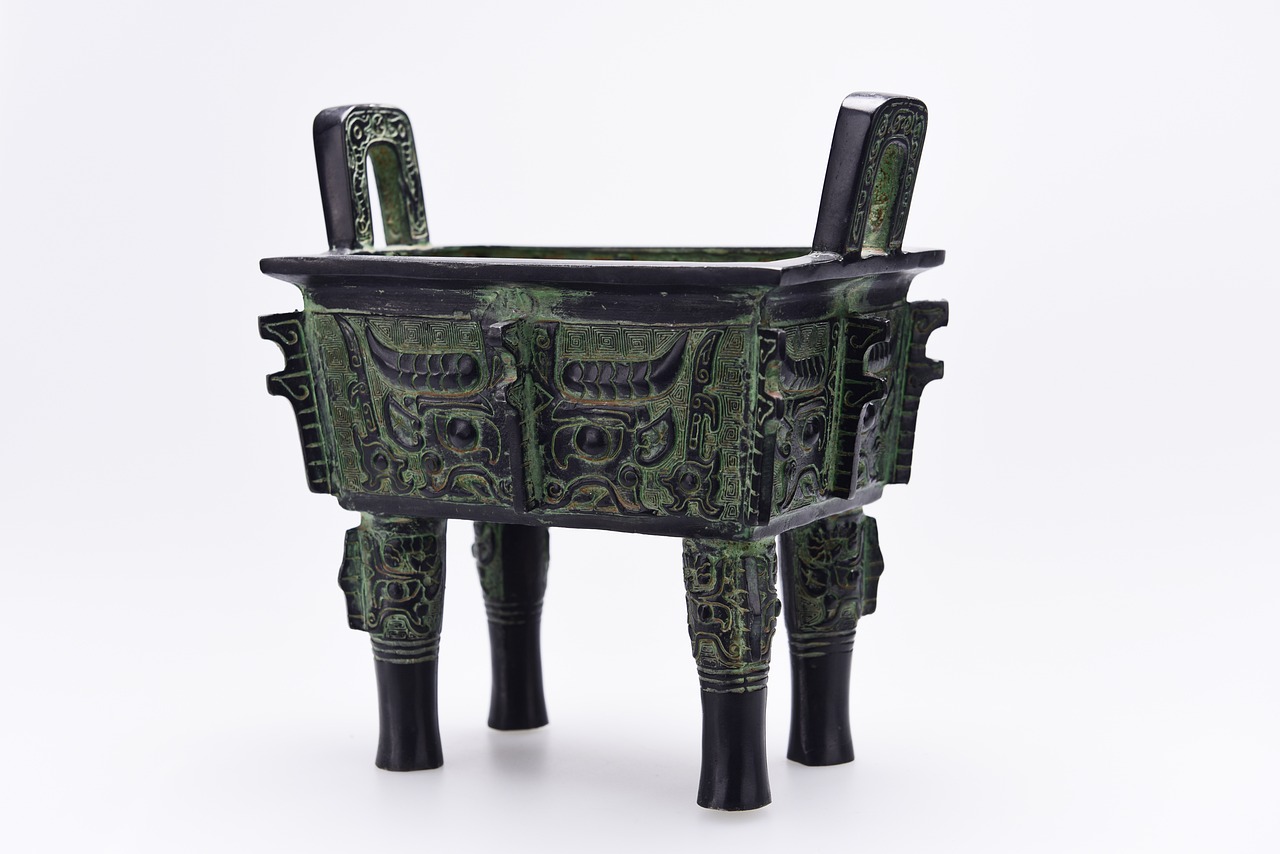The Influence of Ancient Philosophy on Christianity
This article explores how ancient philosophical thought shaped early Christian doctrine, ethics, and theology, revealing the intricate relationship between classical ideas and the development of Christian beliefs.
Ancient philosophy, particularly from Greece and Rome, laid foundational concepts that influenced Christian thinkers. Philosophical schools such as Platonism, Aristotelianism, and Stoicism provided a rich tapestry of ideas that early Christians wove into their theological frameworks. For instance, the notion of an ultimate reality or a higher truth was a common thread that resonated with Christian teachings about God. The dialectical methods employed by these philosophers encouraged a deeper exploration of concepts like morality, existence, and the nature of the divine. It’s fascinating to see how these ancient ideas were not merely academic but became essential to the beliefs and practices of early Christian communities.
Plato's ideas on forms and the nature of reality significantly impacted Christian theology. His concept of the World of Forms, where abstract ideals exist beyond our physical realm, parallels the Christian understanding of God's eternal nature. Early Church Fathers, such as Justin Martyr and Origen, integrated Platonism into their theological frameworks, arguing that the material world was a reflection of a higher spiritual reality. They believed that through Christ, believers could access these divine truths, bridging the gap between the earthly and the heavenly.
St. Augustine is a pivotal figure in merging Platonic thought with Christian doctrine. His philosophical writings, particularly in The Confessions and The City of God, demonstrate an intricate dance between faith and reason. Augustine argued that human beings, created in the image of God, possess an innate desire for truth and goodness, a concept deeply rooted in Platonic philosophy. This synthesis laid the groundwork for Western Christianity, influencing countless theologians and philosophers who followed.
Augustine's views on the soul, influenced by Plato, shaped Christian anthropology significantly. He posited that the soul is immortal and inherently connected to God, which is a notion that reverberates throughout Christian teachings. Augustine's belief that the soul's ultimate purpose is to seek union with the divine resonates with the Platonic idea of the soul's journey toward higher truths. This understanding of the soul not only provided a framework for individual morality but also fostered a communal sense of purpose among early Christians.
Augustine's ethical teachings, rooted in Platonic philosophy, provided a robust framework for Christian morality. He emphasized the importance of divine grace in achieving moral goodness, arguing that humans, while capable of rational thought, are ultimately dependent on God's grace for salvation. This perspective helped shape the moral compass of early Christians, guiding them to live in accordance with divine will rather than mere human reasoning. Augustine’s integration of ethics and theology created a comprehensive guide for Christian conduct that remains influential to this day.
Aristotle's philosophy also played a crucial role in shaping Christian thought. His emphasis on logic, ethics, and the nature of being provided a systematic approach to understanding the world. Later theologians, such as Thomas Aquinas, drew heavily from Aristotelian concepts, arguing that reason and faith are not mutually exclusive but rather complementary. Aristotle's notion of the "Golden Mean," which advocates for moderation in all things, found its way into Christian ethical teachings, promoting a balanced approach to virtuous living.
Neoplatonism emerged as a bridge between ancient philosophy and Christianity, emphasizing the transcendence of the divine. It introduced concepts such as the One, a singular source of all reality, which resonated with Christian ideas of God’s absolute nature. This philosophical movement influenced early Christian mystics, encouraging a deeper exploration of the divine through contemplation and spiritual practices.
Plotinus's ideas on the One and the nature of existence influenced Christian mystics profoundly. His emphasis on the inner experience of the divine encouraged practices such as meditation and prayer, which became integral to Christian spirituality. The mystical traditions that emerged from this synthesis fostered a deeper connection to God, inviting believers to experience the divine presence in their lives.
The interplay between ancient philosophy and Christianity has left a profound legacy that continues to shape contemporary Christian thought and practice. The philosophical foundations laid by ancient thinkers not only enriched early Christian doctrine but also provided tools for understanding complex theological issues. As we reflect on this intricate relationship, it becomes clear that the wisdom of ancient philosophy remains relevant, encouraging believers to seek truth, goodness, and a deeper relationship with the divine.
- How did ancient philosophy influence early Christian beliefs?
Ancient philosophy provided foundational concepts that early Christians integrated into their theology, ethics, and understanding of God. - What role did Augustine play in this synthesis?
Augustine merged Platonic thought with Christian doctrine, shaping key ideas about the soul and morality. - How did Aristotelian philosophy contribute to Christian ethics?
Aristotelian logic and ethics offered a systematic approach that complemented Christian teachings on morality and virtue. - What is Neoplatonism's significance in Christian mysticism?
Neoplatonism emphasized the transcendence of the divine, influencing mystical practices and encouraging deeper spiritual experiences.

The Roots of Ancient Philosophy
Ancient philosophy, particularly from the rich intellectual traditions of Greece and Rome, laid the groundwork for a myriad of concepts that would later shape the early doctrines of Christianity. Imagine a vast garden, where each philosophical school represents a different flower, contributing its unique fragrance to the bouquet of thought that blossomed in the early Christian era. The interplay of ideas from these ancient thinkers provided a fertile soil for the growth of Christian theology, ethics, and metaphysics.
One of the most significant schools of thought was Platonism, which emphasized the existence of abstract forms or ideals that transcended the physical world. Plato's belief in a higher realm of truth and beauty resonated deeply with early Christian thinkers, who sought to understand the nature of God and creation. This philosophical backdrop allowed early Christians to articulate their beliefs in a manner that was both intellectually rigorous and spiritually profound.
Another vital contributor was Aristotelianism, which offered a more empirical approach to understanding reality. Aristotle's emphasis on observation and logic provided a framework through which early theologians could explore the natural world and its relation to the divine. His ethical teachings, rooted in the idea of virtue and the good life, also influenced the moral frameworks that emerged within Christianity.
Additionally, the Stoics introduced concepts of natural law and the importance of reason, which became integral to Christian ethics. Their teachings on self-control, virtue, and the interconnectedness of all beings provided a philosophical basis for many Christian moral teachings. The Stoics believed that living in accordance with nature was paramount, a sentiment that echoed in the teachings of Christ and the early Church.
To summarize, the roots of ancient philosophy can be seen as a complex tapestry woven from various strands of thought. Each school contributed its unique insights, enriching the early Christian intellectual landscape. Here’s a brief overview of the key philosophical schools and their contributions:
| Philosophical School | Key Contributions |
|---|---|
| Platonism | Concept of ideal forms, emphasis on the transcendent nature of truth |
| Aristotelianism | Empirical observation, logic, and ethics based on virtue |
| Stoicism | Natural law, reason, and the importance of virtue in moral living |
As we delve deeper into how these ancient philosophies influenced Christian thought, it becomes clear that the early Church was not merely a reaction to Judaism but rather a synthesis of various intellectual traditions. This blend of ideas helped early Christians articulate their beliefs in ways that were both relatable and profound, allowing their message to resonate across diverse cultures and societies.

Platonism and Christian Theology
When we dive into the world of early Christian theology, it's impossible to ignore the profound influence of Platonism. This ancient philosophical framework, established by Plato, introduced concepts that would become integral to Christian thought. At its core, Platonism posits that beyond our tangible world lies a realm of ideal forms—perfect and unchanging templates of all things. This notion of a higher reality resonated deeply with early Christian thinkers, who sought to understand the nature of God and creation.
One of the key aspects of Platonism that made its way into Christian theology is the idea of the transcendent God. Just as Plato described the forms as existing in a separate, higher realm, early Christians began to envision God as existing beyond the physical universe. This perspective allowed them to explore the divine nature in a way that emphasized God's perfection and immutability. Consequently, theological discussions began to revolve around how God relates to the material world, leading to rich debates about the nature of creation and existence.
Furthermore, the Platonic concept of the dualism between the physical and the spiritual realms found its echo in Christian teachings. Early Church Fathers, like Justin Martyr and Origen, adopted these ideas, emphasizing the soul's journey toward the divine and the importance of spiritual enlightenment. They argued that the material world, while created by God, was inferior to the spiritual realm and that true knowledge and salvation lay in transcending the physical.
To illustrate this relationship, consider the following table that outlines the parallels between Platonic ideas and Christian theology:
| Platonism Concepts | Christian Theology Interpretations |
|---|---|
| World of Forms | Heavenly Realm of God |
| Dualism (Body vs. Soul) | Body and Spirit in Christian Anthropology |
| Search for Truth | Seeking God and Divine Revelation |
| Immortality of the Soul | Christian Belief in Eternal Life |
This table highlights how the philosophical underpinnings of Platonism provided a framework for early Christians to articulate their beliefs about God, creation, and the human soul. By integrating these ancient ideas, they were able to construct a theology that was not only rich and complex but also relatable to the philosophical inquiries of their time.
As we continue to explore the integration of Platonism into Christian thought, it becomes evident that this philosophical tradition was not merely an academic exercise. Instead, it was a vital component in shaping the very fabric of Christian doctrine. The early Church Fathers' engagement with Platonic ideas allowed them to address the spiritual needs of their communities, offering a deeper understanding of the divine that resonated with both the educated elite and the layperson.
In summary, the influence of Platonism on Christian theology is a testament to the dynamic interplay between ancient philosophy and religious belief. By embracing these philosophical concepts, early Christians were able to articulate a vision of God and existence that not only aligned with their spiritual experiences but also engaged with the intellectual currents of their time.

Augustine's Synthesis
St. Augustine stands as a towering figure in the history of Christian thought, masterfully weaving together the threads of Platonic philosophy and Christian doctrine. His writings not only shaped the theological landscape of his time but also laid the groundwork for many future discussions within the Church. Augustine's ability to synthesize these two distinct realms—ancient philosophy and emerging Christian beliefs—was nothing short of revolutionary. He did this by engaging deeply with the philosophical ideas of his predecessors while simultaneously addressing the spiritual needs of a burgeoning faith.
One of the most significant aspects of Augustine's synthesis was his interpretation of Plato's Theory of Forms. Plato posited that the material world was merely a shadow of a higher realm of perfect forms or ideas. Augustine adopted this notion but reinterpreted it through a Christian lens. He argued that the ultimate form, the highest reality, is God Himself. In Augustine's view, understanding the divine nature required not just philosophical reasoning but also spiritual insight. This perspective allowed him to bridge the gap between faith and reason, suggesting that both could coexist harmoniously.
Furthermore, Augustine's exploration of the concept of the soul was profoundly influenced by Platonic thought. He believed that the soul is immortal and that its ultimate goal is to reunite with God. This idea not only shaped Christian anthropology but also provided a framework for understanding human existence in relation to the divine. His reflections on the soul's journey towards God emphasized the importance of inner transformation and moral integrity, echoing Plato's emphasis on the pursuit of the good.
In terms of ethics and morality, Augustine's teachings drew heavily from Platonic philosophy, particularly the notion that the good is an objective reality that transcends human opinion. He argued that true happiness can only be found in the love of God, a sentiment that resonated deeply with early Christians seeking guidance in a morally ambiguous world. Augustine's ethical framework encouraged believers to look beyond mere compliance with laws, urging them to cultivate a genuine love for God and neighbor. This transformative approach to morality became a cornerstone of Christian ethical teaching.
To illustrate Augustine's synthesis further, consider the following table that summarizes key elements of his philosophical contributions:
| Aspect | Augustine's Contribution | Platonic Influence |
|---|---|---|
| The Nature of God | God as the ultimate form and reality | The Theory of Forms |
| Concept of the Soul | Immortal soul seeking unity with God | Immortality and the realm of forms |
| Ethics | Love of God as the foundation of morality | Objective good and the pursuit of the good |
Augustine's ability to articulate these complex ideas in a way that was accessible to the average believer is part of what makes his work so enduring. He wrote not just as a philosopher but as a pastor, deeply concerned with the spiritual welfare of his community. His letters, sermons, and treatises were filled with personal reflections and practical advice, making profound philosophical concepts relatable and applicable to everyday life.
In conclusion, Augustine's synthesis of Platonic philosophy and Christian doctrine represents a pivotal moment in the development of Western thought. His insights continue to resonate, reminding us of the profound connections between faith and reason, and how ancient ideas can enrich contemporary spirituality. The legacy of his work is a testament to the enduring power of philosophical inquiry in the pursuit of truth.

Concept of the Soul
The concept of the soul has been a profound and transformative element in both ancient philosophy and Christian thought. St. Augustine, drawing heavily from Plato's teachings, articulated a vision of the soul that is not only immortal but also central to understanding human existence. In Augustine's view, the soul is the essence of a person, the divine spark that connects humanity to God. This idea resonates deeply within Christian doctrine, where the soul is often seen as the seat of moral decision-making and spiritual life.
Augustine proposed that the soul is inherently good, reflecting the image of God, yet it is also susceptible to sin and corruption. This duality raises intriguing questions about human nature and the divine purpose. He believed that the soul's journey involves a return to its divine origin, a concept that mirrors Plato's theory of the forms—where the soul yearns for the ultimate truth and goodness found in the divine. This philosophical underpinning provided early Christians with a framework to understand salvation, redemption, and the eternal life promised by Christ.
Moreover, Augustine's exploration of the soul's immortality offered a robust foundation for Christian eschatology. He argued that the soul continues to exist after physical death, a belief that has profound implications for Christian ethics and morality. The idea that our actions in this life influence the fate of our souls in the afterlife instills a sense of responsibility and urgency in moral living. As a result, Augustine's teachings on the soul not only shaped theological discourse but also impacted the everyday lives of believers, encouraging them to seek virtue and avoid vice.
To illustrate Augustine's influence, consider the following table that highlights key aspects of his views on the soul compared to Platonic thought:
| Aspect | Plato's View | Augustine's View |
|---|---|---|
| Nature of the Soul | Immortal and divine, seeking the forms | Immortal and created in God's image, seeking God |
| Relationship to the Body | Body is a prison for the soul | Body is a vessel for the soul's purpose |
| Moral Implications | Virtue leads the soul closer to the forms | Virtue leads the soul closer to God and eternal life |
In essence, Augustine's interpretation of the soul represents a significant synthesis of Platonic philosophy and Christian theology. His thoughts encouraged believers to reflect on their inner lives, fostering a deeper understanding of their spiritual journey. The soul, as Augustine described, is not merely an abstract concept; it is a vital component of what it means to be human in a Christian worldview. This perspective continues to influence contemporary discussions about the nature of humanity, morality, and the divine.
- What is the significance of the soul in Christianity? The soul is seen as the eternal essence of a person, crucial for understanding one's relationship with God and the afterlife.
- How did Augustine's views on the soul differ from those of Plato? While both viewed the soul as immortal, Augustine emphasized its connection to God and moral responsibility, whereas Plato focused on the soul's pursuit of truth through the forms.
- Why is the concept of the soul important in moral discussions? The belief in the soul's immortality encourages individuals to act ethically, knowing their choices impact their eternal fate.

Ethics and Morality
When we dive into the depths of Augustine's ethical teachings, it's fascinating to see how his thoughts were not just abstract ideas floating in the air but were deeply rooted in the rich soil of Platonic philosophy. Augustine believed that morality was not merely about adhering to a set of rules; instead, it was about striving for a deeper connection with the divine. His perspective was revolutionary for early Christians, as it provided a framework that intertwined ethical behavior with spiritual aspiration.
At the heart of Augustine's ethics lies the concept of love. He posited that the highest good is to love God above all else, which then naturally extends to loving one's neighbor. This idea is encapsulated in the famous Christian commandment to "love your neighbor as yourself." For Augustine, love was not just an emotion; it was an action that required commitment and sacrifice. He argued that true ethical behavior flows from a heart oriented towards God, thus creating a moral compass that guides individuals in their daily lives.
Augustine also emphasized the importance of the will in moral decision-making. He believed that humans have the capacity to choose between good and evil, but this choice is often clouded by sin. This struggle between the divine call to goodness and the pull of earthly desires creates a complex moral landscape that many Christians navigate even today. Augustine’s teachings remind us that morality is not simply about following laws but involves a continual process of self-examination and striving towards a higher ideal.
To illustrate Augustine's ethical framework, consider the following table that summarizes key aspects of his moral philosophy:
| Aspect | Description |
|---|---|
| Love | Central to Augustine's ethics, love for God and neighbor is the foundation of moral behavior. |
| Will | Humans possess the ability to choose between good and evil, highlighting the importance of personal responsibility. |
| Sin | Augustine acknowledged the reality of sin, which complicates moral choices and the pursuit of goodness. |
| Self-examination | Continuous reflection on one's actions and motivations is essential for ethical living. |
Augustine's ethical teachings provided early Christians with a robust framework for understanding morality in a complex world. By intertwining love, will, and the acknowledgment of sin, he created a moral landscape that was both realistic and aspirational. This legacy continues to resonate in contemporary Christian thought, as believers strive to navigate their own moral journeys while seeking a closer relationship with the divine.
- What was Augustine's main contribution to Christian ethics? Augustine emphasized the importance of love and the will in moral decision-making, providing a framework that integrates ethical behavior with spiritual aspiration.
- How did Augustine view sin in relation to ethics? Augustine acknowledged that sin complicates moral choices, but he believed in the capacity of individuals to choose good through self-examination and divine love.
- Why is love central to Augustine's moral philosophy? For Augustine, love is the highest good and serves as the foundation for all ethical behavior, guiding individuals to act in alignment with God's will.

Aristotelian Influence
The influence of Aristotle on Christian thought is nothing short of remarkable. While Plato laid the groundwork for metaphysical discussions, it was Aristotle who brought a more systematic approach to philosophy, emphasizing empirical observation and logical reasoning. This shift in perspective was crucial for early Christian theologians who sought to reconcile faith with reason. Aristotle's work provided a robust framework that allowed Christian thinkers to engage with the world around them, fostering a deeper understanding of both God and humanity.
One of the most significant contributions of Aristotle to Christian theology is his concept of the unmoved mover. This idea posits that there must be a first cause, an ultimate source of all existence that itself is not caused by anything else. Early Christian philosophers, such as Thomas Aquinas, embraced this notion and integrated it into their theological frameworks. Aquinas, in particular, utilized Aristotle's principles to argue for the existence of God, presenting a logical structure that appealed to both the intellect and the heart.
Moreover, Aristotle's emphasis on virtue ethics provided a moral compass for early Christians. Unlike the more abstract ethical systems of his predecessors, Aristotle focused on the importance of character and the cultivation of virtues as a means to achieve a good life. This practical approach resonated with Christian teachings, which emphasized the development of moral character in the pursuit of holiness. The integration of Aristotelian ethics allowed for a more nuanced understanding of morality, bridging the gap between philosophical inquiry and spiritual practice.
To illustrate the key aspects of Aristotelian influence on Christian thought, consider the following table:
| Aristotelian Concept | Christian Interpretation |
|---|---|
| Unmoved Mover | God as the ultimate cause of existence |
| Virtue Ethics | Moral character development in Christian life |
| Teleology (Purpose) | Understanding creation's purpose through God's plan |
In addition to these concepts, Aristotle's idea of teleology, or the study of purpose, played a vital role in shaping Christian cosmology. Early Christian thinkers began to explore the idea that everything in creation has a purpose ordained by God. This notion not only reinforced the belief in a purposeful universe but also encouraged Christians to seek meaning in their lives and actions. By recognizing that their existence is intertwined with a divine plan, believers found motivation to live virtuously and fulfill their God-given potential.
In summary, the Aristotelian influence on Christianity cannot be overstated. By providing a logical framework for understanding existence, morality, and purpose, Aristotle's philosophy enriched Christian theology and ethics. His ideas helped to create a synthesis that allowed faith and reason to coexist, paving the way for future theological exploration and the development of a rich intellectual tradition within Christianity.
- How did Aristotle's philosophy differ from Plato's? Aristotle focused on empirical observation and practical ethics, while Plato emphasized ideal forms and abstract concepts.
- What is the significance of the unmoved mover in Christian theology? It serves as a foundational argument for the existence of God, establishing Him as the ultimate cause of all that exists.
- How did Aristotle influence Christian ethics? His virtue ethics provided a framework for understanding moral character, aligning with Christian teachings on living a virtuous life.

The Role of Neoplatonism
Neoplatonism emerged as a fascinating philosophical movement in the third century AD, acting as a bridge between the rich traditions of ancient philosophy and the burgeoning Christian faith. It was primarily influenced by the teachings of Plato but evolved to incorporate various mystical and metaphysical elements that resonated deeply with early Christian thinkers. Neoplatonism emphasized the idea of a transcendent, ineffable One, which was seen as the ultimate source of all existence. This notion of a singular divine source significantly shaped the way early Christians perceived God, moving beyond the anthropomorphic depictions common in earlier religious traditions.
One of the key figures in Neoplatonism was Plotinus, whose works laid the groundwork for much of the subsequent philosophical discourse. Plotinus proposed that all of reality emanates from the One, creating a hierarchy of existence that ranges from the most perfect and abstract to the material world we inhabit. This idea parallels the Christian understanding of God as the Creator, who exists beyond the physical realm yet is intimately involved with His creation. The Neoplatonic view of the cosmos as an interconnected whole resonated with early Christian theologians, who sought to understand the relationship between God, humanity, and the universe.
Neoplatonism also introduced the concept of emanation, which describes how all things flow from the divine source in a cascading manner. This notion allowed early Christians to conceptualize the relationship between God and creation in a way that emphasized God's transcendence while also affirming His immanence. The idea that human souls could return to the divine source through contemplation and virtuous living found a welcoming audience among Christian mystics, who were eager to explore the depths of their spiritual experiences.
Furthermore, Neoplatonism contributed significantly to the development of mystical theology within Christianity. The emphasis on inner experience and personal communion with the divine became a cornerstone of Christian mysticism. Many early Christian mystics, such as Pseudo-Dionysius the Areopagite, drew heavily from Neoplatonic ideas, integrating them into their own theological frameworks. This synthesis of thought laid the foundation for a rich tradition of mystical writings that sought to articulate the ineffable experience of God.
In addition to its theological implications, Neoplatonism also influenced Christian ethics and morality. The focus on the soul's ascent towards the divine encouraged early Christians to pursue a life of virtue and self-discipline. The Neoplatonic view of the soul as a divine spark trapped in the material world resonated with Christian teachings on sin and redemption, creating a framework that emphasized the importance of moral living as a means to reunite with God.
To summarize, Neoplatonism played a pivotal role in shaping early Christian thought by:
- Providing a framework for understanding the nature of God and creation.
- Influencing mystical theology and practices within Christianity.
- Encouraging ethical living as a path to divine communion.
As we reflect on the profound impact of Neoplatonism, it becomes clear that its legacy continues to echo in contemporary Christian thought and practice, reminding us of the rich tapestry of ideas that have shaped our spiritual heritage.

Plotinus and Christian Mysticism
When we dive into the world of Plotinus, we find ourselves exploring a fascinating intersection between ancient philosophy and early Christian thought. Plotinus, a prominent figure in the Neoplatonist school, introduced profound ideas about the nature of existence and the divine that would resonate deeply with Christian mystics. His concept of the One—an ultimate source of all reality—invited thinkers to ponder the relationship between the material world and a transcendent God. This notion of a singular, ineffable source laid the groundwork for many mystical interpretations within Christianity.
One of the most striking aspects of Plotinus's philosophy is his emphasis on introspection and the inner journey toward union with the divine. He proposed that the soul, much like a divine spark, yearns to return to its source. This idea parallels the Christian belief in the soul's desire for God, suggesting that through contemplation and spiritual practice, individuals could achieve a mystical union with the divine. Early Christian mystics, heavily influenced by Plotinus, adopted this introspective approach, seeking to understand their relationship with God through personal experience rather than solely through doctrine.
Furthermore, Plotinus's ideas about the emanation of reality—where all things flow from the One in a hierarchical manner—resonated with Christian concepts of creation. In this framework, God is not just a distant creator but an active presence in the world, continually inviting souls to ascend toward Him. This dynamic relationship between the Creator and creation became a cornerstone for many Christian mystics, who viewed their spiritual practices as pathways to reestablish that connection.
To illustrate the influence of Plotinus on Christian mysticism, we can consider a few key figures who were inspired by his teachings:
- Origen: One of the early church fathers, Origen incorporated Plotinian concepts into his theological framework, emphasizing the pre-existence of the soul and its journey towards God.
- Gregory of Nyssa: He adopted Plotinus’s ideas of the soul’s ascent, suggesting that the ultimate goal of life is to achieve union with God.
- Meister Eckhart: A later mystic who echoed Plotinus’s philosophy, emphasizing the importance of inner experience and the concept of the divine presence within.
In conclusion, the legacy of Plotinus extends far beyond the confines of ancient philosophy; it has profoundly shaped the landscape of Christian mysticism. By bridging the gap between the material and spiritual, his teachings have provided a rich tapestry of thought that encourages believers to explore their inner selves and seek a deeper connection with the divine. As we reflect on this intricate relationship, we recognize that the quest for understanding and experiencing God remains a timeless journey, one that continues to inspire countless souls today.
- Who was Plotinus?
Plotinus was a major philosopher of the Neoplatonic school, known for his teachings on the nature of existence and the divine. - How did Plotinus influence Christian mysticism?
His ideas about the One and the soul's journey toward union with the divine significantly impacted early Christian mystics. - What is the significance of the One in Plotinus's philosophy?
The One represents the ultimate source of all reality, from which everything emanates, and is central to understanding the relationship between God and creation. - Can you name any Christian thinkers influenced by Plotinus?
Yes, notable figures include Origen, Gregory of Nyssa, and Meister Eckhart, who integrated his concepts into their mystical practices.

Conclusion: The Lasting Legacy
The interplay between ancient philosophy and Christianity has created a rich tapestry that continues to influence modern thought and practice. The profound questions raised by ancient philosophers about existence, ethics, and the nature of the divine have not only shaped early Christian doctrine but also resonate through the centuries. Think about it: how many of our contemporary moral dilemmas echo the philosophical inquiries of Plato and Aristotle? The dialogue between these ancient ideas and Christian beliefs has forged a legacy that is both complex and enlightening.
As we reflect on this legacy, it's essential to recognize how the philosophical frameworks established by figures like St. Augustine and Aristotle have provided a foundation for theological discourse. Augustine’s synthesis of Platonic thought with Christian doctrine has paved the way for countless theological explorations. His views on the soul, morality, and the nature of God have inspired generations of thinkers, encouraging a deeper understanding of what it means to be human in relation to the divine.
Moreover, the influence of Neoplatonism cannot be overlooked. By bridging ancient philosophical thought with Christian mysticism, Neoplatonists like Plotinus offered a unique perspective on the transcendent nature of God. This synthesis has enriched Christian mystical practices, inviting believers to explore the depths of their faith in a more profound way. The enduring impact of these ideas is evident in modern spiritual movements that seek to connect the individual soul with the divine essence.
In conclusion, the legacy of ancient philosophy within Christianity is not merely a historical curiosity; it is a living, breathing aspect of our spiritual journey. The questions raised by these ancient thinkers continue to challenge and inspire us, urging us to seek understanding and connection in our faith. As we navigate the complexities of modern life, the philosophical insights of the past remain a guiding light, reminding us of the profound truths that lie at the heart of our existence.
- How did ancient philosophy influence early Christian thought?
Ancient philosophy provided foundational concepts regarding ethics, the nature of reality, and the divine, which early Christian thinkers integrated into their doctrines.
- Who were the key philosophers that shaped Christian beliefs?
Key figures include Plato, Aristotle, and St. Augustine, each contributing unique perspectives that influenced Christian theology and ethics.
- What is the significance of Neoplatonism in Christianity?
Neoplatonism served as a bridge between ancient philosophy and Christianity, emphasizing the transcendence of the divine and influencing mystical theology.
- How do ancient philosophical ideas manifest in contemporary Christian practice?
Many contemporary Christian teachings on morality, the nature of the soul, and the relationship with God are deeply rooted in ancient philosophical thought.
Frequently Asked Questions
- How did ancient philosophy influence early Christian thought?
Ancient philosophy, particularly from Greek and Roman traditions, provided foundational concepts that shaped early Christian doctrine and ethics. Thinkers like Plato and Aristotle offered ideas about the nature of reality, morality, and the divine that early Christians integrated into their beliefs, creating a rich tapestry of thought that blended faith and reason.
- What role did Platonism play in Christian theology?
Platonism significantly impacted Christian theology, especially through the works of early Church Fathers. They adopted Plato's concepts of forms and the ideal realm, which helped them articulate their understanding of God, creation, and the nature of the soul. This integration allowed for a more profound exploration of spiritual truths within a philosophical framework.
- Who was St. Augustine and why is he important?
St. Augustine was a pivotal figure in early Christianity, known for synthesizing Platonic thought with Christian doctrine. His writings on the nature of the soul, morality, and divine grace have left a lasting legacy, influencing Western Christian theology. Augustine's exploration of the soul's immortality and ethical teachings provided a crucial framework for Christian beliefs and practices.
- In what ways did Aristotle's philosophy contribute to Christian ethics?
Aristotle's philosophy introduced a systematic approach to ethics that emphasized virtue and reason. Later Christian theologians incorporated his ideas on logic and moral reasoning into their teachings, helping to shape a more structured understanding of Christian ethics. This integration allowed for a balance between faith and rationality in moral decision-making.
- What is Neoplatonism and how did it influence Christianity?
Neoplatonism emerged as a philosophical movement that bridged ancient philosophy and Christianity. It emphasized the transcendence of the divine and the quest for unity with the One. This perspective influenced Christian mysticism and theology, encouraging believers to seek a deeper connection with God and explore the nature of existence beyond the material world.
- How did Plotinus impact Christian mysticism?
Plotinus, a key figure in Neoplatonism, introduced ideas about the One and the nature of existence that resonated with early Christian mystics. His emphasis on transcending the material realm and seeking divine unity influenced mystical practices within Christianity, encouraging a more profound spiritual experience and understanding of God's nature.
- What is the lasting legacy of ancient philosophy on Christianity today?
The interplay between ancient philosophy and Christianity has created a profound legacy that continues to shape contemporary Christian thought and practice. Many theological concepts, ethical frameworks, and spiritual insights can trace their roots back to ancient philosophical traditions, demonstrating the enduring relevance of these ideas in today's religious landscape.



















